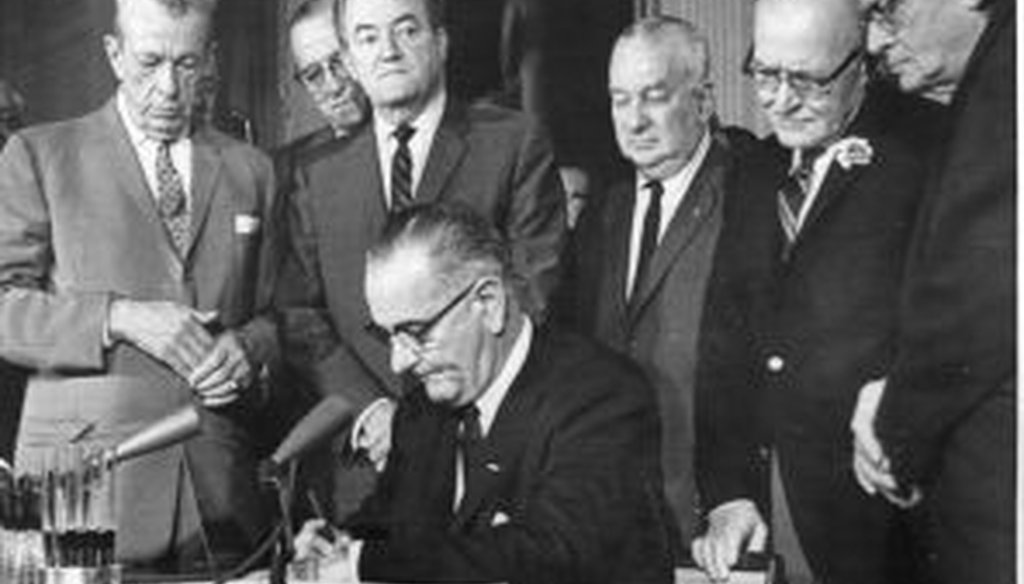Stand up for the facts!
Our only agenda is to publish the truth so you can be an informed participant in democracy.
We need your help.
I would like to contribute

President Lyndon Johnson signs the Civil Rights Act. Also pictured are Sen. Everett Dirksen (left) and Reps. Charles Halleck and William McCulloch, all Republicans.
When Rand Paul of Kentucky followed up his victory in the Republican U.S. Senate primary by saying that he had some reservations about the philosophical underpinnings of the Civil Rights Act, it prompted criticism from across the ideological spectrum. Paul eventually retracted his comments, but they nonetheless sparked a media frenzy.
On ABC's This Week, Republican National Committee chairman Michael Steele -- his party's first African-American chairman -- made a point of arguing that the GOP had been on the forefront of civil rights when the landmark act Rand was referring to was passed in 1964, as well as the Voting Rights Act that passed the following year.
"Our party has always had a strong view on this issue," Steele told ABC's Jake Tapper. "We fought very hard in the '60s to get the civil rights bill passed as well as the voting rights bill."
We decided to see whether Steele was correct, so we went to the history books and consulted historians. We ruled Steele's statement True; see our complete report to find out why.
Our Sources
See individual item for sources.














































